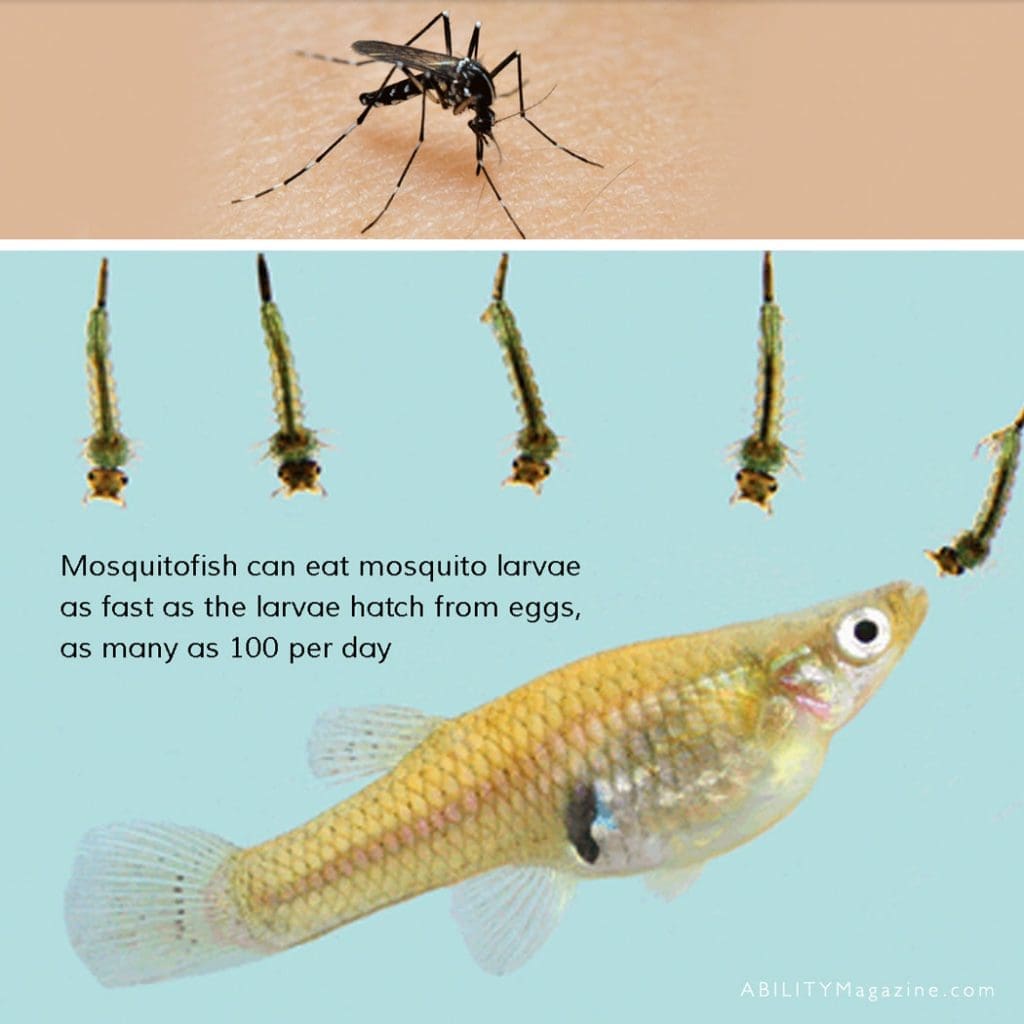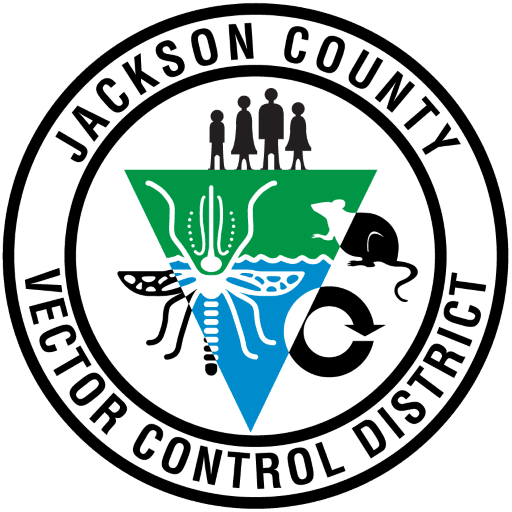Mosquitofish are ready to pick up
Advantages of using mosquitofish over other fish in water sources:
- Mosquitofish are specific to consuming mosquito larvae.
- Can inhabit shallow waters and penetrate dense vegetation growth where larvae and pupae hide.
- Survive in a wide range of environmental conditions, such as temperature changes, organic pollution, and poor food supply.
- Easy to maintain.
Mosquitofish biology:
- Maximum size is about 2 inches in length.
- Live 2-3 years, but may exceed this lifespan if conditions are favorable.
- Give birth to live young.
- Produce up to 3-5 broods per year.

*****In recognition of the threat to native species from exotic species, Oregon Law (ORS-498.222) regulates where non-native fish such as Mosquitofish (Gambusia affinis) can be released. The Oregon Department of Fish and Wildlife (ODFW) has set guidelines restricting the stocking of Mosquitofish to “aquaria”, defined as self-contained systems that are not fed or drained by natural waterways. Natural waterways include creeks, streams, sloughs, ponds, lakes and ditches if connected to natural waterways. Permanent ponds located in floodplain areas are not considered “aquaria” and should not receive Mosquitofish because flooding could allow them to enter natural waterways and harm native fish and wildlife.*****
